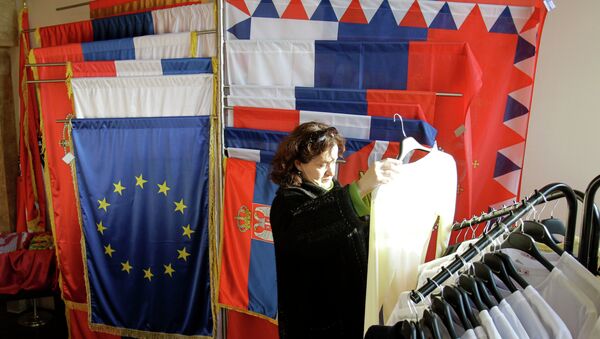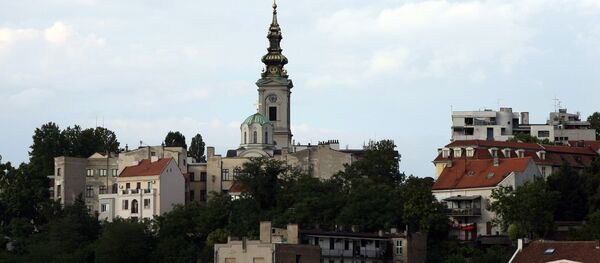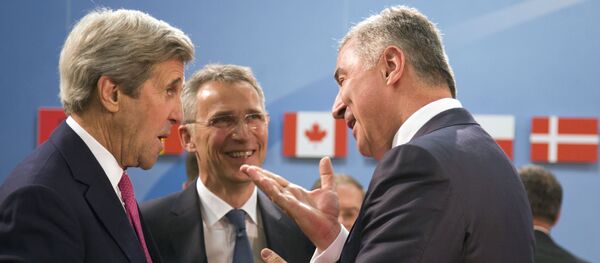On Wednesday EU diplomats announced a breakthrough in Serbia's accession process, and that chapters 23 and 24 of the proceedings will be opened by the end of June, as planned, after Croatia became the last EU member to give the go-ahead.
The chapters are among the 35 areas in which the EU requires candidate countries to implement reforms. The two chapters in question deal with issues pertaining to the judiciary and human rights, as well as security, migration and links with the Schengen area of free movement.
Croatia was reportedly the only member of the 28-member bloc blocking the opening of Chapter 23, and has said it disagrees with Belgrade about the political status of the Croatian minority in Serbia, and about how the countries of the region plan to try those suspected of committing war crimes during the 1990's war in Yugoslavia.
They told the newspaper that Brussels would fast-track Serbia's route to the EU like that of neighboring Montenegro, if it joined Podgorica in endorsing NATO and anti-Russian sanctions.
"Danas' sources give the example of Montenegro, which is quickly progressing through the EU accession process and has a completely different political stance, because Podgorica has distanced itself from Moscow, put in place sanctions against Russia and therefore enabled the doors to the EU and NATO to open quickly," Danas reported.
On Wednesday Serbian political analyst Dragomir Andelkovic told Serbia's news portal Telegraf that the deadlock to Serbia's accession process was actually broken by last week's meeting between Serbian Prime Minister Alexander Vucic and Russian President Vladimir Putin.
In his view, by demonstrating Belgrade's close ties with Moscow, Western countries which had been supportive of Croatia's veto backed off.
"The meeting between Vucic and Putin had a great impact on some Western powers, because it showed that Serbia has a geopolitical alternative, that it has the backing of a great power like Russia. That's the reason why some Western powers started putting pressure on Croatia to stop blocking Serbia's negotiations with the EU as soon as possible," Andelkovic said.




